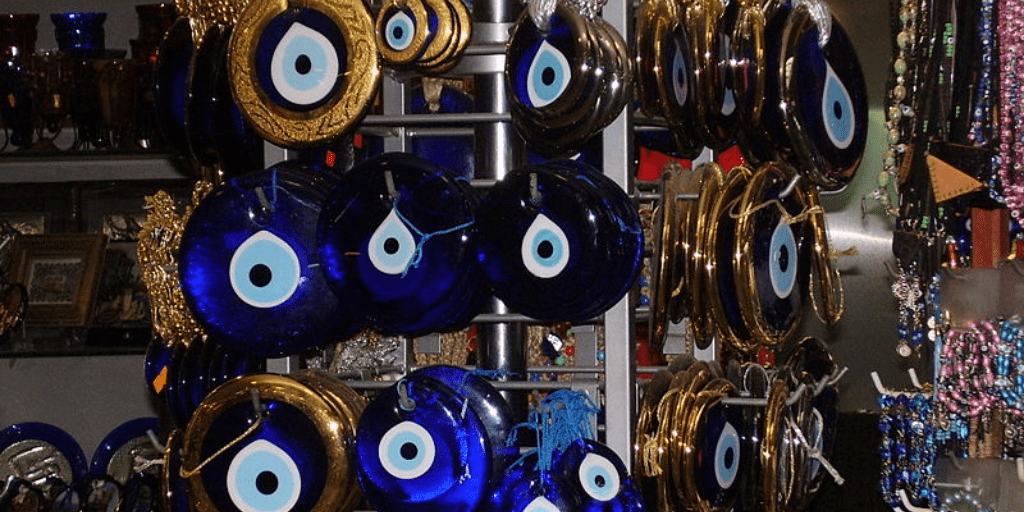Whether it’s a pinch of salt tossed behind the shoulder or fragrant smoke filling a room, superstitions around good luck remain woven into daily life.
These traditions are rituals passed from generation to generation, mixing belief, memory, and culture. While each country adds its own flair, the goal is the same: to invite fortune and keep misfortune at bay. Here are a few of the most beloved good-luck customs from across the region!
Egypt: Tossing Salt Over the Shoulder Clears Bad Energy
In many Egyptian homes, the moment someone leaves and tension lingers in the air, you’ll often hear whispers of how the devil was here. What follows is a swift handful of salt thrown over the left shoulder.
This simple gesture is believed to neutralize jealousy, ward off negative energy, and restore peace to the space. While the act takes just a second, its meaning runs deep, acting as both a protective ritual and an emotional reset for whoever performs it.
Morocco: Burning Rue Smoke Cleanses the Home
In Morocco, a more aromatic ritual takes center stage. Families often burn harmal (wild rue) in a metal censer, especially before guests arrive or after unsettling events.
As the smoke wafts through the home, it’s believed to push out envy and unseen negativity. In some towns, the scent is as familiar as freshly baked bread, especially in older neighborhoods where traditions hold strong.
Lebanon: Buying Lottery Tickets When You Have Itchy Palms
Not all good luck rituals are loud or smoky—some are as subtle as a skin sensation. In Lebanon, an itchy right palm sparks one hopeful assumption: money is on its way. That’s why you’ll find people rushing to buy lottery tickets as soon as they feel the itch.
While many treat it playfully, the superstition still carries weight, especially among older generations. It’s a tiny reminder that luck might arrive when you least expect it—and sometimes, your body gives you the first clue.
Tunisia: Wearing The Hamsa for Protection & Prosperity
In Tunisia, protection often comes in the form of the hamsa—an open palm-shaped amulet known across the region that people wear to ward off the evil eye. But here, it’s hung in doorways, stitched into baby clothes, or dangled from rearview mirrors, the hamsa is believed to block envy and bring blessings.
Because of that, many families pass them down or gift them on special occasions, adding a layer of personal meaning to their symbolism. It’s not just luck they offer—it’s a sense of safety wrapped in tradition.
Saudi: Burning Bukhoor Incense Brings Blessings to Big Events
Before a big event in Saudi Arabia—whether it’s a wedding, a business deal, or exam day—you’re likely to smell bukhoor long before you see it. The rich, woody incense is a spiritual cleanser.
Elders often insist on wafting the smoke around guests or across a room, believing it attracts good luck and chases away lingering negativity. It’s a tradition that turns scent into ceremony, grounding major moments in something both sacred and familiar.
More Than Just Superstition
These good luck traditions aren’t just about fortune—they reflect the values at the heart of the MENA region: hospitality, protection, connection, and hope. It may look simple on the surface, but each one tells a deeper story about how people across the region face the unknown—with culture, with belief, and always, with intention.
WE SAID THIS: Don’t Miss…From Great Singers to Hilarious Superstitions, Here’s How Egypt Has Imprinted the Arab Region



